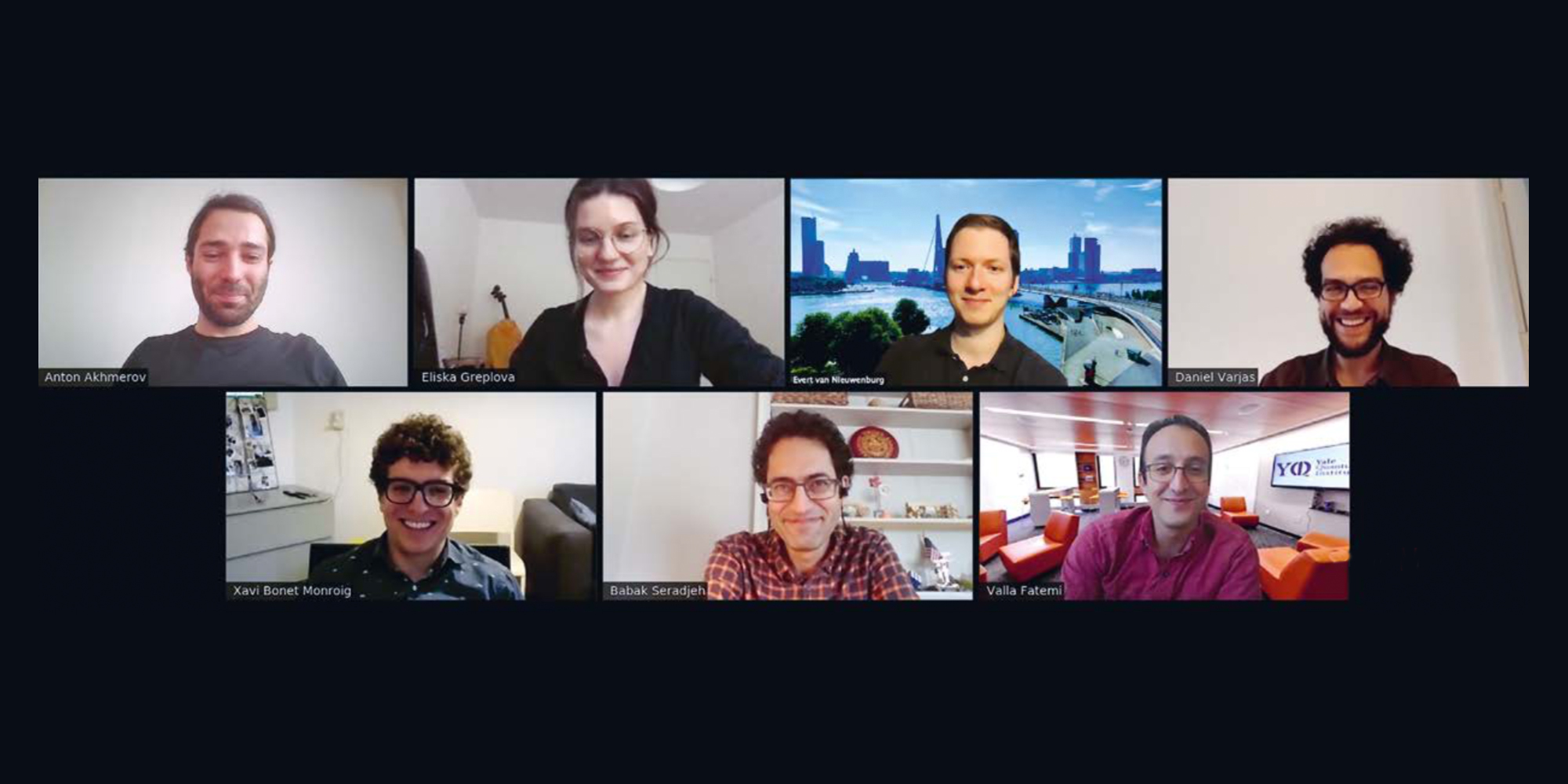Covid-19 lockdowns are causing scientists to turn to online conferencing. But Kavli researchers were exploring the pros and cons of online seminars long before corona.
Anton Akhmerov (top left) and his co-authors Eliska Greplova, Evert van Nieuwenburg, Daniel Vargas, Xavier Bonet-Monroig, Babak Seradjeh and Valla Fatemi. (Screenshot)
Before anyone had heard of corona it was concerns about greenhouse gas emissions and limited mobility due to either health or budget restraints that motivated quantum physicist Dr Anton Akhmerov (Faculty of Applied Sciences) to explore the possibilities of online seminars. Reduced costs, faster and easier to organise, and a potentially broader audience were additional motivations to take conferences online. Akhmerov teamed up with like-minded colleagues and set up a community platform for online conferences called Virtual Science Forum, currently supported by the Kavli Institute of Nanoscience Delft. One of the pages contains a checklist for organising online events. Instead of starting the planning a year before the event, two months is ample time for an online conference, they found. They published an article on online conferences entitled Let’s take this discussion online in the magazine Europhysics News last summer. Delta called Akhmerov with some questions.
Other online conference organisers puzzled with time slots to accommodate participants around the globe. How did you solve that?
“We keep the sessions short to maximise the amount of time zones that can attend our events. The organiser should adapt the schedule to where most of the attendants live. In practice, we often plan three-hour events that are in the afternoon for Europe and in the morning for the US. That’s not very convenient for those in Asia, but we make sure we put all the presentations online for later reference.”
In your article you write that informal discussions, typical for conferences, have to be accommodated separately in online seminars. How will you do this?
“We’re not really sure yet. An online chat may prove to be a good platform for discussions and it’s easy to follow-up on something. There have been experiments with services like Online Town where you approach someone’s avatar to talk to them. We don’t claim that online seminars are a complete substitute for traditional conferences, but the two could coexist.”
I was amazed to see dozens of online conferences every day on the researchseminars.org website you mention. Do you think they’re more numerous than conferences were?
“It’s quite possible. Planning a talk is much easier now, and the talks are easier to find and attend. Still, I think researchers are only just starting to explore the possibilities. For example, we are now setting up an online ‘speaker’s corner’ where everyone may share something interesting anytime, instead of waiting for an invitation.”
Looking at the list, I get the impression that most conferences were on maths and physics. Are archaeologists, botanists and chemists less eager to meet online?
“You could be right, but it is hard for me to tell. researchseminars.org is mainly popular among people working in maths and physics, but other disciplines might have their own initiatives.”
- Download the article here
Do you have a question or comment about this article?
j.w.wassink@tudelft.nl


Comments are closed.